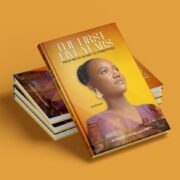Be the First to Know by LawPavilion – On Order for Maintenance After Dissolution of Marriage

Lawyard is a legal media and services platform that provides…
TITLE: CAN A COURT MAKE AN ORDER FOR MAINTENANCE OF A PARTY AFTER A DECREE OF DISSOLUTION HAS BEEN MADE AGAINST SUCH PARTY
CASE TITLE: GABRIEL OSARIEMEN OMOGIATE v. PATRICIA IFEOMA OMOGIATE (2021) LPELR-56018(CA)
JUDGMENT DATE: 19TH NOVEMBER, 2021
JUSTICES: BIOBELE ABRAHAM GEORGEWILL, JCA
JOSEPH EYO EKANEM, JCA
ABIMBOLA OSARUGUE OBASEKI-ADEJUMO, JCA
COURT DIVISION: BENIN
PRACTICE AREA: Matrimonial Causes- Maintenance
FACTS
The Appellant filed a petition for a decree of dissolution of the marriage between him and the Respondent, alleging that the said marriage had broken down irretrievably upon the grounds that since the marriage, the Respondent has behaved in such a way that the Appellant cannot reasonably be expected to live with the Respondent, that the Respondent has deserted the Appellant for a period of at least one year immediately preceding the presentation of the petition, that they have lived apart for a continuous period of at least one year immediately preceding the presentation of the petition and the Respondent does not object to a decree being granted.
The Appellant thus sought for a decree of dissolution of the marriage, nullity or judicial separation and for further orders or reliefs.
The Respondent in response, filed an answer and cross-petition also alleging that the marriage had broken down irretrievably on the grounds that the Appellant constructively deserted the Respondent for a period of at least one year immediately preceding the petition and that the Appellant had meted out acts of cruelty and humiliation on the Respondent during their two and a half years of marriage.
The Respondent thus sought for a decree of dissolution of marriage; an order of custody of the child of the marriage; a declaration that the Respondent and baby are entitled to be maintained by the Appellant from 25th March, 2012 when the Appellant expelled them from their matrimonial home; the sum of N100,000 per month as maintenance allowance for the Respondent for life; the sum of N200,000 per month for maintenance of the only child, among other things.
In its considered judgment, the trial Court made an order dissolving the marriage, granted custody of the only child of marriage to the Respondent with visitation rights to the Appellant and awarded N50,000 monthly for the maintenance of the only child of the marriage, among other things.
Dissatisfied, the Appellant appealed.
ISSUES FOR DETERMINATION:
The Appellant formulated the following issues for determination:
- Whether the learned trial Judge was right to hold that the Respondent/Cross-Petitioner was not obliged to comply with the strict terms of Order 5 Rule 10(1)(a) and (b) of the Matrimonial Causes Rules as to the writing of verifying affidavit in her Cross-petition and right in his refusal to strike out the Respondent/Cross Petitioner’s Cross Petition for want of competence.
- Whether the learned trial Judge was right not to consider and give full effect to the issue raised by the Appellant’s counsel in respect of Respondent/Cross Petitioner’s non-compliance with a fundamental condition precedent in instituting her Cross Petition, that is, writing Certificate of reconciliation as in Appendix form 3 or form 3A in her Document of Answer and Cross Petition as required by Order 2 Rule 1 (a), (b) and (c) of the Matrimonial Causes Rules.
- Whether the learned trial Judge was right to give consideration to ground (b) of the Respondent/Cross Petitioner’s ground for seeking a decree for the dissolution of the marriage, these are, “cruelty” and “humiliation”, which are outside the precinct of the grounds for dissolution of marriage as statutorily stipulated in Section 15(2) (a)-(h) of the Matrimonial Causes Act and right to base his decision on facts that are largely not in evidence.
- Whether the learned trial Judge was right, in law, to make an order for maintenance of the Respondent/Cross Petitioner after making a decree for the dissolution of the marriage between the Petitioner and the Respondent/Cross petitioner.
- Whether the learned trial Judge was right to return a maintenance award of N50,000.00 per month in favor of Promise Omogiate, the only child of the marriage, having regards to the means of the pay petitioner and other facts and circumstances of the facts on record.
The Respondent formulated the following issues for determination:
- Whether the learned trial Judge was right in not striking out the cross petition of the Respondent.
- Whether the learned trial Judge went outside the law and relied on the unpleaded facts and evidence in coming to the conclusion that Respondent has established the basis for the dissolution of the marriage.
- Whether the learned trial Judge was right in making an order for maintenance of Respondent.
- Whether the learned trial Judge was right in ordering an award of N50,000 monthly for the maintenance of their only child of marriage.
COUNSEL SUBMISSION:
Learned Counsel to the Appellant submitted that the provisions of Order 5 Rule 10(1)(a) and (b) of Matrimonial Causes Rules was not complied with by the Respondent and that the verifying affidavit was not attached. That a cross-petition is a petition required to be commenced fulfilling all pre-conditions for filing a petition under the Rules, inclusive of complying with the strict Rules. That there is nothing in the governing Rules or Act that exempted the cross-petitioner from complying with the strict terms of Order 5 Rule 10(1)(a) and (b) of Matrimonial Causes Rules
Learned Counsel submitted that the consideration of a dissolution under “humiliation and cruelty” are outside the precinct of the grounds for dissolution as statutorily stipulated in Section 15 (2) (a-h) of the Matrimonial Causes Act. Also, that there is nothing in Section 70 of the Matrimonial Causes Act that gives the trial Court the statutory leverage to make an award of maintenance in favor of a woman whose marriage to a man has been dissolved and that it deals only with a party to a marriage or with child(ren) of a woman whose marriage has been dissolved.
On the other hand, Learned Counsel to the Respondent submitted that the Matrimonial Causes Rules specifically provides for what a valid answer and cross-petition of a Respondent in a divorce proceeding should contain. That there is no mention of a verifying affidavit and certificate of reconciliation in the provisions in respect of answer and cross-petition.
Learned Counsel further submitted that the trial Court was right when it made the order of maintenance for the Respondent, that the Appellant’s submission that the Respondent is not entitled to be maintained is strange and misconceived. He referred to Section 70 (1) and (3) of the Matrimonial Causes Act which makes provision for maintenance of the party to the marriage in a divorce proceeding. That Section 70 (1) of the Matrimonial Causes Act makes provision for maintenance of a party to a marriage or child of the marriage.
DECISION/HELD:
In the final analysis, the appeal was dismissed and the judgment of the High Court was affirmed.
RATIOS:
- MATRIMONIAL CAUSES- MAINTENANCE: Whether the Court can make an order for maintenance of a party even after a decree of dissolution has been made against such party
“…Section 70 (1) & (2) of the MCA are provisions made in respect of maintenance of a party of the marriage or of children of the marriage, pending disposal or proceedings. While in Sub-section 3 it clearly says thus; “The Court may make an order for maintenance of a party notwithstanding that a decree is or has been made against that party in the proceedings with respect to maintenance are related”. This provision clearly empowers a Court to make an order for maintenance irrespective of a decree made against a party. The combined provision of Section 70 (1) & 3 of the MCA means that even after the decree of dissolution has been made and the Respondent sought for maintenance in her cross-petition, it is my humble view that she is entitled to seek such order contrary to the arguments of the Appellant. See ERHAHON v ERHAHON SUPRA.” Per OBASEKI-ADEJUMO, JCA
- MATRIMONIAL CAUSES- MAINTENANCE: Principles governing the grant of maintenance order in matrimonial causes
“The guide is found in Section 70 (1) that the means/earnings capacity of parties and conduct of parties and all other relevant circumstances. This in my view was what the lower Court considered especially the bank accounts, unchallenged evidence that he has stopped supporting the child, what is the certainty that he would arise in times of the needs where the child is involved, it is the mother who will be there. See; KAYILI v YILBUK & ORS (2015) LPELR-24323 (SC); EZECHUKWU v ONWUKA LPELR-26055 (SC), where the Court held that it is elementary principle of law that such unchallenged averments/evidence must be acted upon by the Courts as being true. It is also deemed admitted and ought to be acted upon by the Court before it is given, see NIGERIAN BANK FOR COMMERCE AND INDUSTRY v JOSEPH OGBEMI & ANOR? (2012) LPELR-14354 (CA). Also, the backlog of the expenses the Appellant has shown non-interest.” Per OBASEKI-ADEJUMO, JCA
Lawyard is a legal media and services platform that provides enlightenment and access to legal services to members of the public (individuals and businesses) while also availing lawyers of needed information on new trends and resources in various areas of practice.













